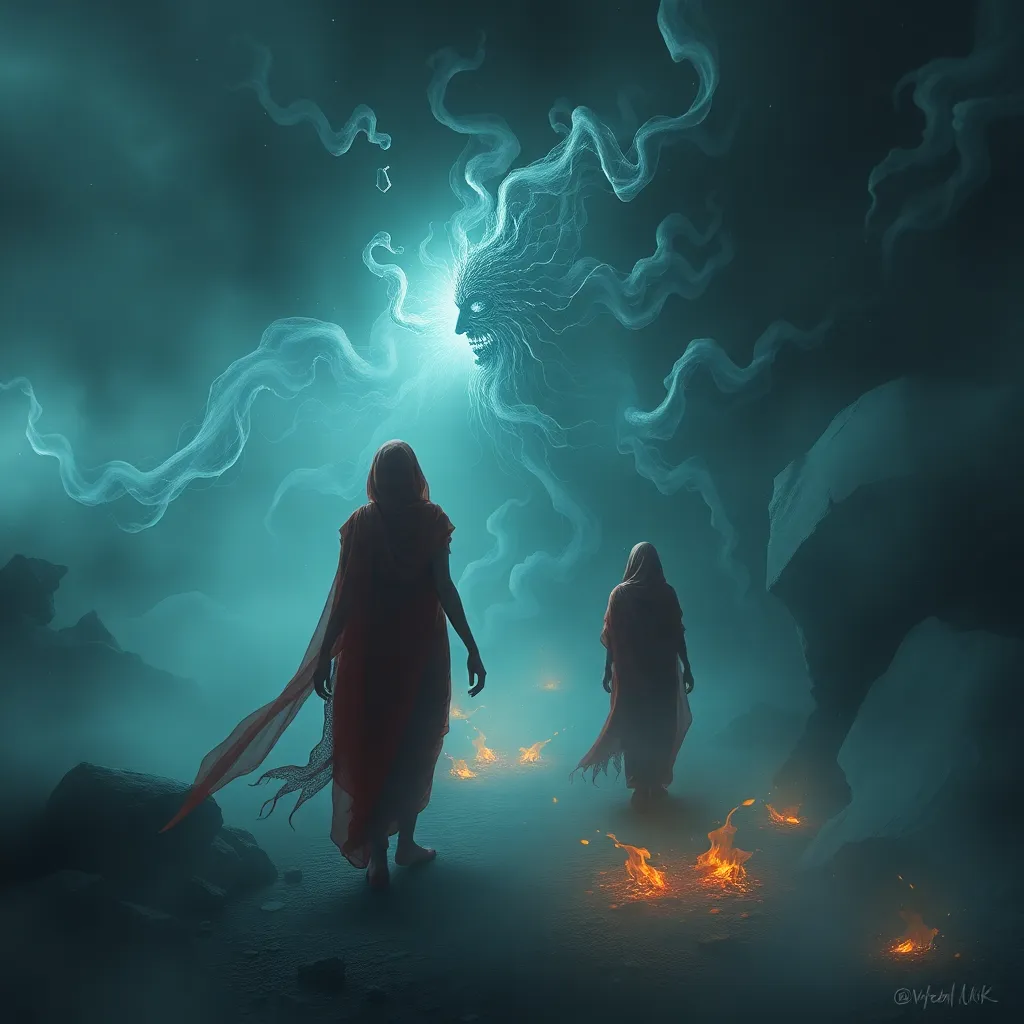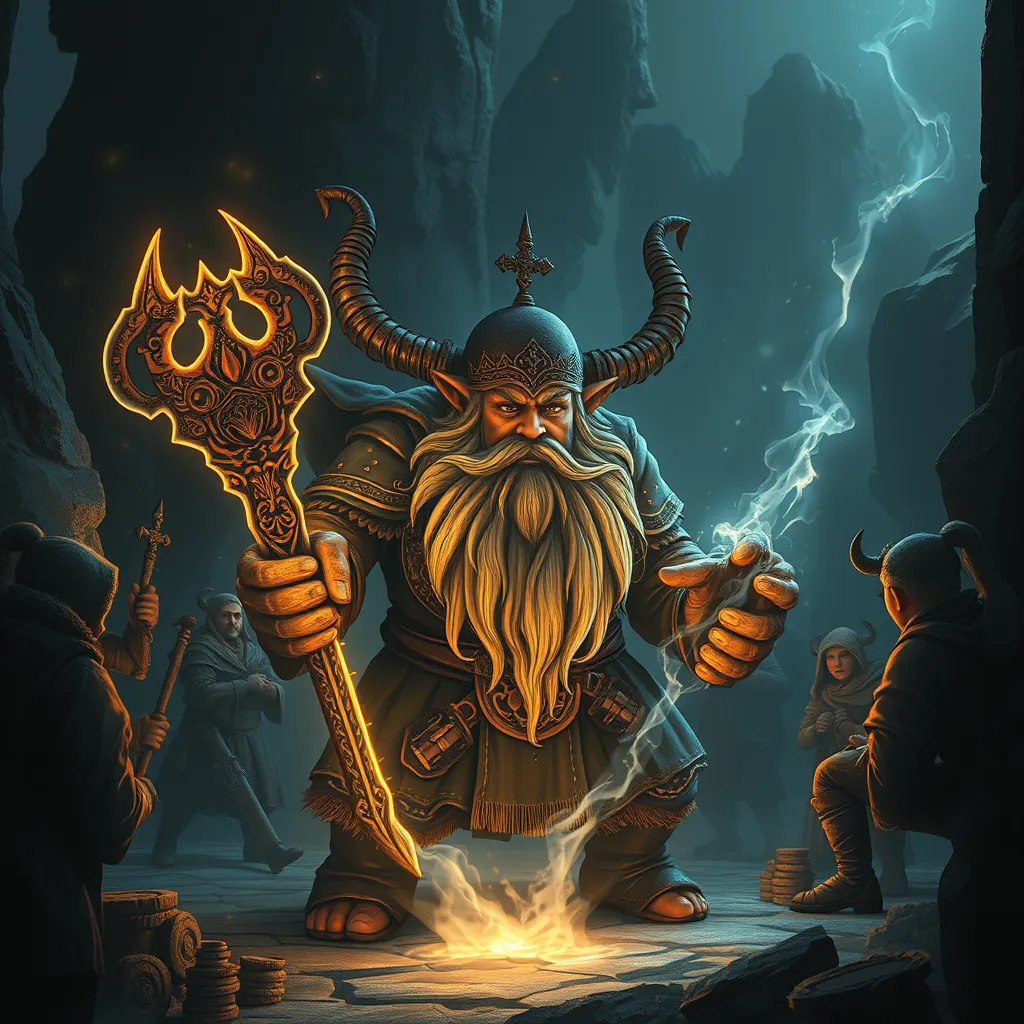Echoes of the Fallen: Ghosts and the Afterlife in Hinduism
I. Introduction
Hinduism, one of the world’s oldest religions, offers a rich tapestry of beliefs regarding the afterlife. Central to these beliefs is the concept of the soul and its journey beyond death. Ghosts, as manifestations of souls that have not found peace, play a significant role in Hindu culture and mythology. This article aims to explore the intricate beliefs surrounding ghosts and the afterlife in Hinduism, examining the philosophical foundations, cultural significance, and spiritual practices associated with these concepts.
II. The Concept of Atman and Reincarnation
A. Definition of Atman in Hindu Philosophy
Atman, in Hindu philosophy, is understood as the true self or soul of an individual, which is eternal and divine. It is distinct from the physical body and mind, representing the essence of consciousness that connects every being to the universal spirit, Brahman.
B. The Cycle of Samsara and Its Implications for the Afterlife
The cycle of samsara refers to the continuous cycle of birth, death, and rebirth, influenced heavily by one’s actions in life. This cycle emphasizes that life is not a singular existence but a series of experiences that contribute to the evolution of the soul.
C. The Process of Reincarnation and Its Relationship with Karma
Reincarnation is the process by which the soul is reborn into a new body, influenced by the accumulated karma from previous lives. Good deeds lead to favorable rebirths, whereas negative actions may result in less desirable outcomes. This relationship underscores the moral framework within Hinduism, urging individuals to live a life of righteousness.
III. The Nature of Ghosts in Hindu Belief
A. Definition and Characteristics of Ghosts (Preta and Bhuta)
In Hindu belief, ghosts are often classified into two primary categories: preta and bhuta. A preta is a restless spirit that has died with unfulfilled desires or in a state of distress. In contrast, a bhuta typically refers to a spirit of a deceased person who has not received proper funeral rites or has lingering attachments to the earthly realm.
B. The Cultural and Spiritual Significance of Ghosts
Ghosts hold a significant place in Hindu culture, serving as reminders of the impermanence of life and the importance of spiritual practices. They are often seen as messengers from the afterlife, embodying the unresolved issues or emotions that the living must address.
C. Historical Texts and Scriptures Referencing Ghosts
Ghosts and spirits are referenced in various Hindu texts, including the Garuda Purana and the Mahabharata. These scriptures discuss the nature of the afterlife, the characteristics of ghosts, and the rituals necessary to ensure peace for the departed souls.
IV. The Journey of the Soul After Death
A. The Rituals and Rites of Passage for the Deceased (Antyesti)
The Antyesti rituals, or last rites, are critical for ensuring the soul’s safe passage to the afterlife. These rites include cremation, offerings, and prayers, which help to alleviate any burdens the soul may carry.
B. The Role of Family and Community in Guiding the Soul
Family and community play a vital role in the journey of the deceased. They perform rituals, offer prayers, and provide support to the family of the departed, ensuring that the soul receives the necessary guidance and blessings.
C. The Significance of Mourning and Remembrance in Hindu Traditions
- Mourning rituals are essential for both the living and the dead.
- Remembrance ceremonies, like Shraddha, honor the ancestors and invoke blessings for their peace.
- These practices reinforce family bonds and cultural continuity.
V. The Role of Karma in the Afterlife
A. How Karma Influences the Fate of the Soul
Karma, the law of cause and effect, plays a crucial role in determining the fate of the soul after death. Positive actions lead to favorable reincarnations, while negative actions can result in suffering in the next life or even as a ghost.
B. Examples of Karmic Repercussions in the Context of Ghosts
Ghosts are often depicted as individuals suffering due to their past misdeeds. For instance, a person who committed wrongful acts may return as a restless spirit, unable to find peace until they atone for their actions.
C. The Moral Teachings Associated with Karma and Afterlife Beliefs
The teachings surrounding karma encourage individuals to act with compassion and integrity, understanding that their actions have lasting consequences beyond this life. This moral framework is integral to Hindu philosophy and spirituality.
VI. Spiritual Practices and Exorcism
A. Methods of Appeasing Restless Spirits
To appease restless spirits, families may perform specific rituals, offer food, or recite prayers. These practices are intended to provide comfort to the spirit and help it transition peacefully to the afterlife.
B. Rituals and Prayers for the Dead (Shraddha)
The Shraddha ceremony is a significant practice in Hinduism. It involves offering food and prayers to deceased ancestors, expressing gratitude, and asking for blessings. This ritual is believed to nourish the souls of the departed.
C. The Role of Priests and Spiritual Leaders in Ghost-Related Practices
Priests and spiritual leaders play a crucial role in guiding families through the rituals associated with death and ghosts. They possess the knowledge and authority to conduct rites that ensure the proper treatment of the deceased and the appeasement of any lingering spirits.
VII. Ghosts in Hindu Mythology and Folklore
A. Notable Ghost Stories and Legends in Hindu Texts
Hindu mythology is rich with ghost stories and legends. Tales of vengeful spirits and benevolent ghosts are common, often serving as moral lessons about life, death, and the consequences of one’s actions.
B. The Portrayal of Ghosts in Contemporary Hindu Narratives
In modern narratives, ghosts are often depicted in literature and film, reflecting both traditional beliefs and contemporary anxieties. These portrayals can range from horror to comedy, illustrating the evolving nature of ghost stories in Hindu culture.
C. Cultural Variations of Ghost Beliefs Across Different Regions in India
Beliefs about ghosts vary significantly across different regions of India. For example, in some cultures, ghosts are seen as protectors, while in others, they are feared as malevolent forces. These variations highlight the rich diversity within Hindu beliefs and practices.
VIII. Conclusion
A. Summary of Key Insights on Ghosts and the Afterlife in Hinduism
This exploration of ghosts and the afterlife in Hinduism reveals a complex interplay of beliefs surrounding the soul, karma, and spiritual practices. Ghosts serve as a reminder of the moral responsibilities that individuals hold in life and the importance of honoring the deceased.
B. The Relevance of These Beliefs in Modern Hindu Practice
In contemporary Hindu practice, beliefs about ghosts and the afterlife continue to influence rituals and cultural norms. They provide a framework for understanding death and the continuity of the soul, reinforcing the significance of spiritual practices in daily life.
C. Final Reflections on the Spiritual Implications of Ghosts and the Afterlife in Hindu Culture
The spiritual implications of ghosts and the afterlife in Hindu culture invite individuals to reflect on their own lives, actions, and relationships. They encourage a deeper understanding of the interconnectedness of all beings and the enduring nature of the soul.



